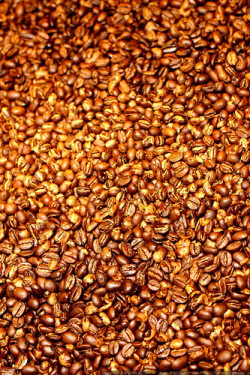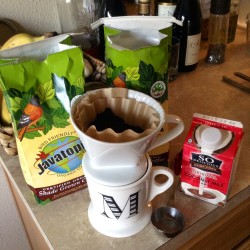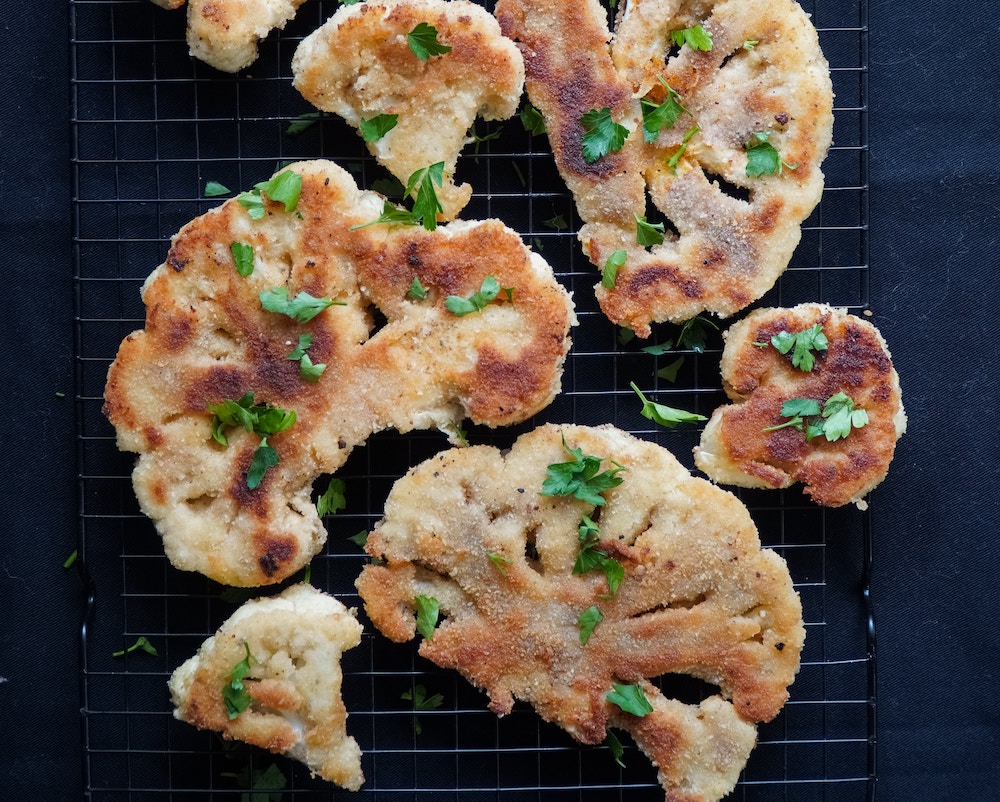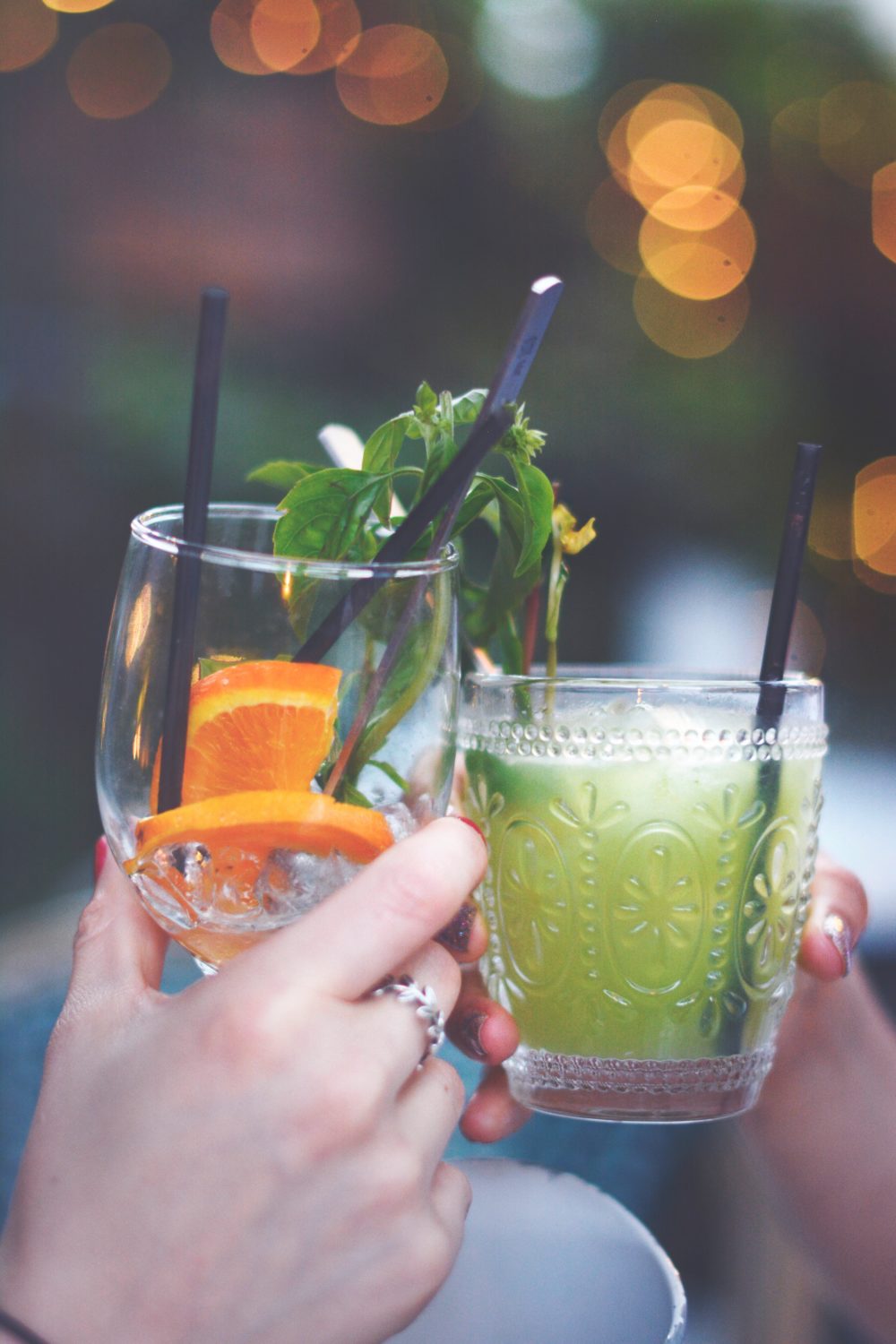Is coffee your frenemy? For a while now, I’ve warred with myself over my coffee habit. There was even a period of a few months when I didn’t drink it at all—only to find myself missing the ritual every morning. One glorious November afternoon during my sans-coffee phase, I stumbled upon vegan coconut milk coffee creamer at the health store. I had been planning to treat myself to a cup from the in-store café, but in an excited frenzy, I bought a bag of coffee and the coconut creamer. After a long period of separation, my favorite bean and I were cozy once more.
Coffee is a special ritual in my family. Going out for coffee and bookstore browsing is one of my favorite mother-daughter activities. I also associate coffee with some of my closest friendships. I fondly remember making coffee in my college dorm room and sharing it with my dear friend down the hall as we dished about relationships and drafted essays on 19th century American lit…

Yet, at one point, I thought I may be better off without my morning brew. First, I’d been reading about eating mostly alkaline foods—such as fruits, veggies, and alkaline-forming grains like quinoa. I worried that coffee, with a PH around 5, could neutralize my efforts to reduce acidity in my diet. Secondly, being hypoglycemic, I am acutely aware of caffeinated coffee’s tendency to spike blood sugar, setting you up for the eventual crash and subsequent carb craving.
Although these were my immediate concerns, I’d also heard that coffee could contribute to long-term health problems, such as breast cancer. Fortunately for coffee-lovers like myself, new findings increasingly support coffee’s health benefits, allowing me to see coffee differently. Dr. Walter Willett of the Harvard School of Public Health claims, “I think we can say quite confidently that there’s no increased risk of cancer with coffee consumption.” In fact, Breast Cancer Research and the non-profit Institute for Scientific Information on Coffee conclude through meta-analysis that coffee is actually inversely linked to breast cancer for both pre- and post-menopausal women. For example, for pre-menopausal women, four cups a day lowers breast cancer risk by 38%.
There’s more good news. The National Institutes of Health found that drinking 3 or more cups a day may increase lifespan—even if those 3 cups are decaf! Additionally, coffee may help prevent diabetes, colon cancer, and endometrial cancer. For this, the credit goes to coffee’s abundance of antioxidants and photochemicals.
With certain health issues, the caffeine in coffee may lend a hand. A small amount of caffeine may enhance performance at the gym (or ballet barre). Even if the sense of energy that comes from a swig of jo is temporary, it can boost mood and activity level. While we’re on the topic of mood, the Harvard School of Public Health explains that women drinking two cups of caffeinated coffee experience a reduced risk of mild depression. Caffeine stimulates neurotransmitters similar to the effects of antidepressants. What’s more, according to Dr. Willett, caffeine also reduces the risk of Parkinson’s disease.
While all of this is percolation to my ears, it remains important to remember that coffee is a stimulant, and we all have our limits. For me, I can handle about two, eight ounce cups a day—I usually stick to just one in the morning, though. Also, because I’m on a mission to maintain stable blood sugar levels, I usually make coffee with 1/3 caffeinated and 2/3 decaffeinated beans. I still feel the caffeine! Furthermore, I make a point of enjoying the ritual and taste of coffee. It’s my little luxury. I maintain a healthy relationship to coffee by not using it as an energy substitute.
How to Brew:
First, buy organic and fair trade. According to Dr. Claudia Welch, author of Balance Your Hormones Balance Your Life, the pesticides used to cultivate non-organic coffee are estrogenic in nature and may contribute to hormone imbalance. Buying fair trade helps ensure that coffee farmers are justly compensated for their labor.
Pick a roast.
Dr. Peter Martin of the Vanderbilt Institute of Coffee Studies explains that lighter roasts, like Starbucks’ Blonde Roast, contain more antioxidants. The more the beans are roasted (i.e., the darker they become), the greater the antioxidant loss.
When I buy decaf, I make sure that I’m getting coffee that’s been decaffeinated through the Swiss Water Process. This method removes 99.9% of caffeine from coffee through water alone. Conventional decaf is often processed with chemicals I’m not interested in ingesting, including methylene chloride and ethyl acetate.
Decide on a brewing method.
Paper coffee filters remove cafestol, a substance in coffee that increases blood cholesterol. On the other hand, Men’s Health recommends making coffee with a Moka pot since these produce coffee with twice the antioxidants than makers requiring a paper filter. I personally like using a single brew cup, pictured below, with a paper filter.
If your like your coffee sweet but want to avoid sugar, chemicals, and extra calories, try easing the bitter with a little powdered stevia or ground cinnamon.
Store.
Finally, since exposure to air increases free-radical damage to coffee beans, store them in an airtight container and only grind them when you’re ready to brew.
Related articles: Benefits of Different Types of Tea
Also by Mary: My Beauty Detox Journey
Vegan Closet – the Search for Answers
__
Photos: Jeremy MP via Flickr, Sean Dreilinger via Flickr, Mary Hood






